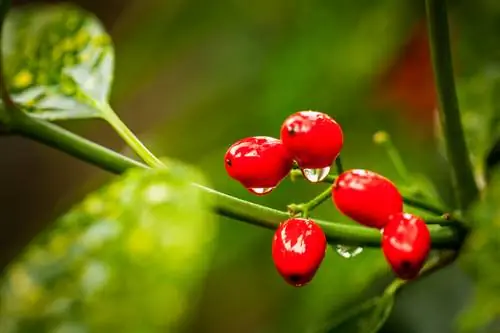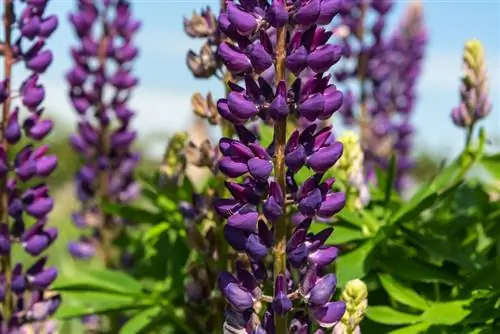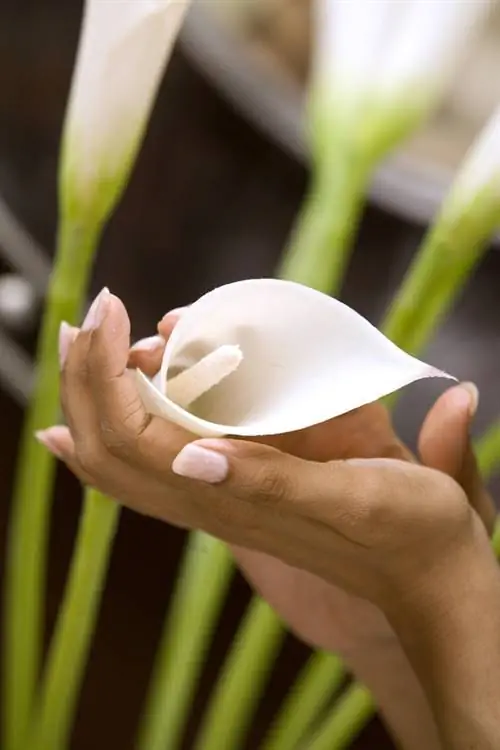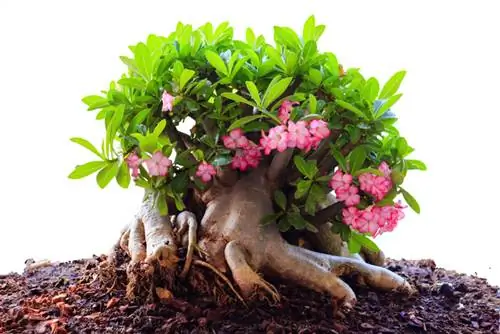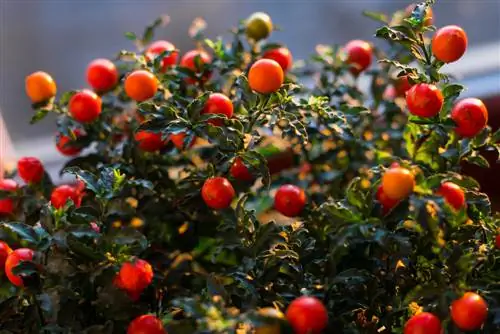- Author admin leonars@hobbygardeners.com.
- Public 2023-12-16 16:46.
- Last modified 2025-01-23 11:20.
It is also known as golden orange, butcher's palm and Japanese laurel, the aukube. In this country it is a poorly winter-hardy plant and is therefore more likely to be found indoors. Is it poisonous?
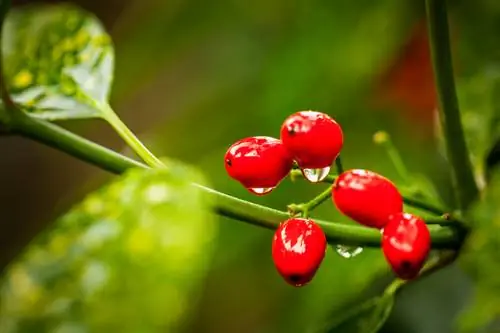
Is the Aukube poisonous?
The Aucube is poisonous due to the toxin Aucubin contained in its seeds. Consumption may cause fever and vomiting. The leaves of the plant are also poisonous, so it should be considered purely ornamental.
Aucubin makes the plant poisonous
You should consider the Aukube as a purely ornamental plant. In particular, stay away from snacking on the tempting berries! Their seeds contain 3% of the toxin aucubin, which can cause fever and vomiting if consumed. The leaves are also poisonous.
Recognizing the Audibe
This is how you recognize the cut-compatible aukube:
- evergreen, leathery leaves
- white-yellow speckled pattern on the leaves
- irregularly serrated on the edge of the leaf
- purple-brown flowers with yellow anthers
- coral red berries
Tip
Be careful if you want to propagate the aukube using its poisonous fruits or the seeds they contain! Never leave these plant parts unattended at home if there are small children or pets in the household!

